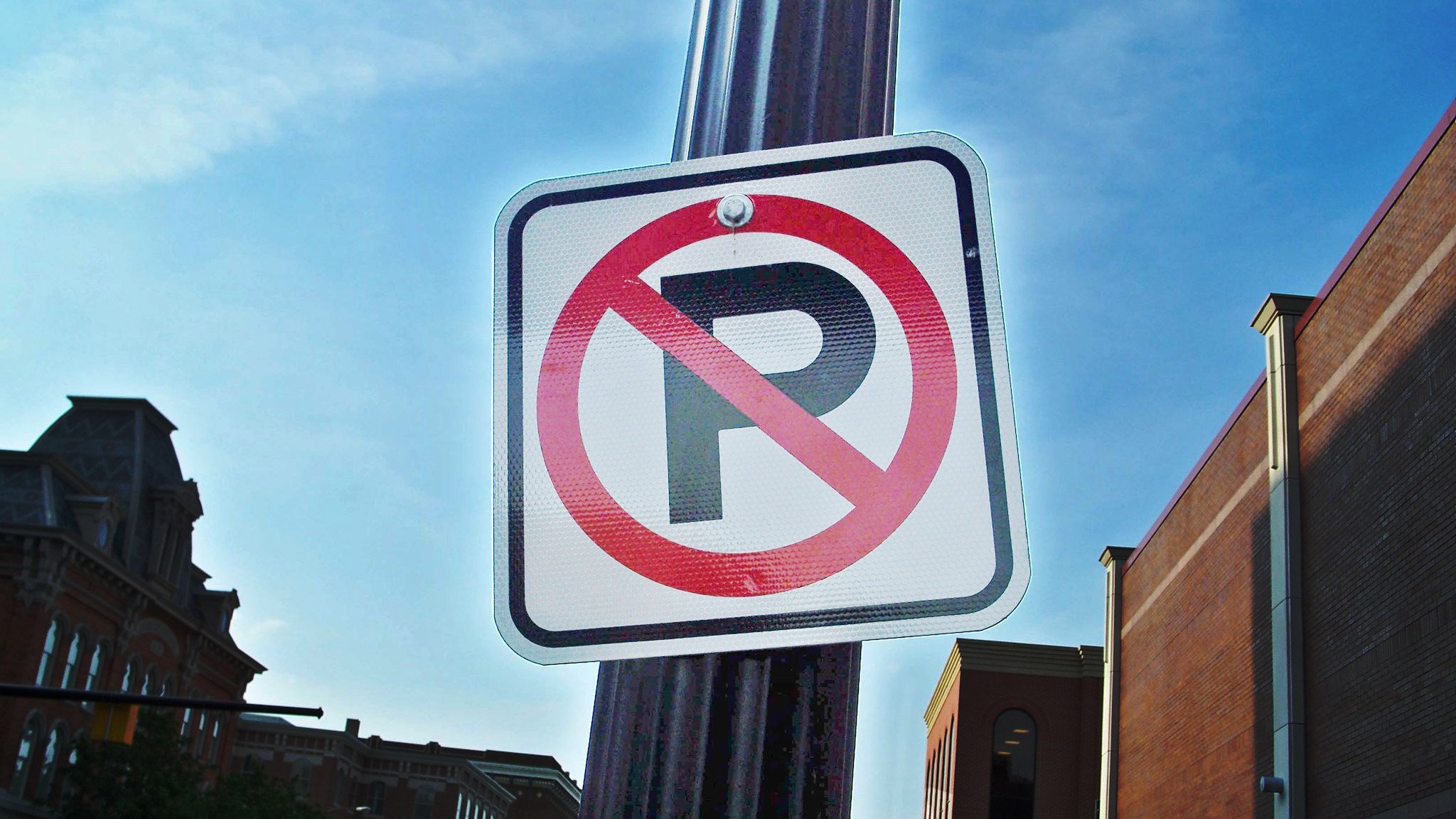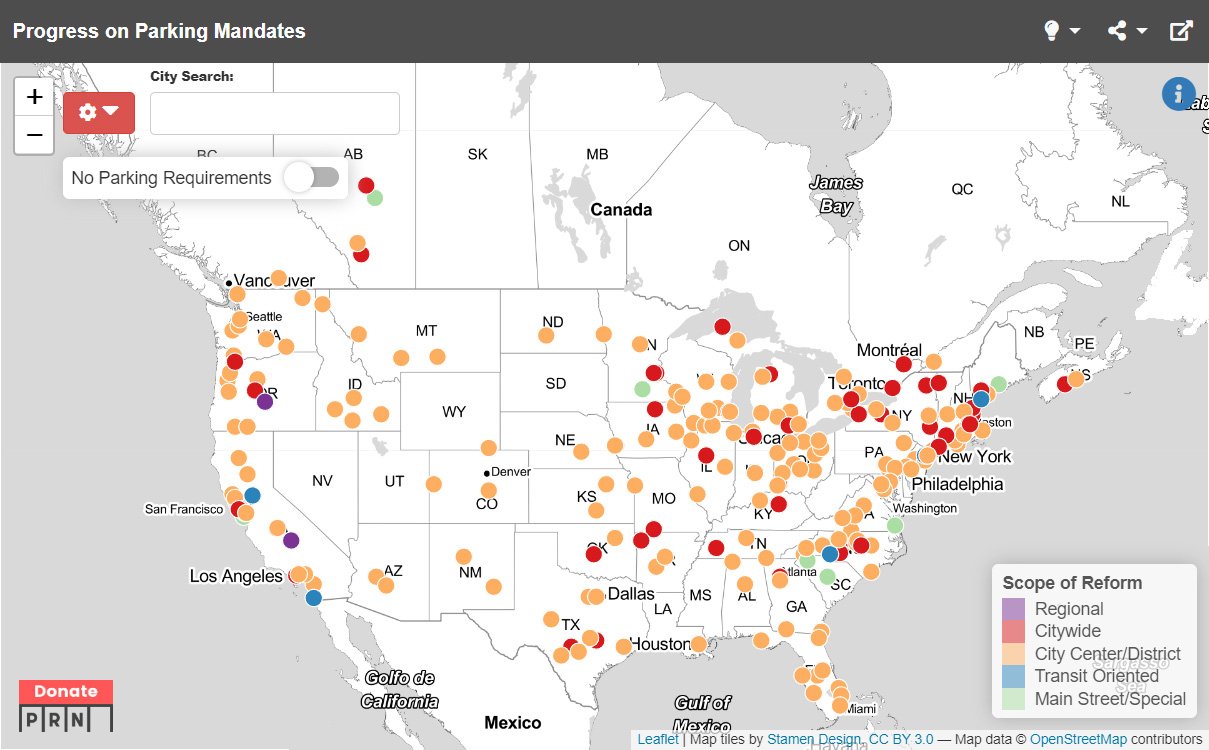Lexington Uses Nationwide Precedent To Repeal Parking Mandates
(Source: Flickr/Brian Rawson-Ketchum.)
In August of 2022, Lexington, Kentucky, eliminated minimum parking mandates from the city code. In the past, this is a move city leaders might have found difficult to make, citing a lack of precedent or a concern that local businesses may suffer. But many cities that have successfully removed minimum parking requirements are giving decisionmakers the information they need to act.
Municipalities like Lexington have for years based a site’s number of parking stalls on anything from the building’s square footage, to number of bedrooms, to restaurant seats. In places like Anchorage, Nashville, and Fayetteville, these provisions have inhibited businesses from renovating, rehabilitating, or repurposing commercial buildings without incurring the costs of parking they wouldn’t necessarily want or need. At their most destructive, such policies can ruin small towns like Sandpoint, Idaho, and exacerbate housing shortages—and, as Tony Jordan of the Parking Reform Network noted, ceding “so much space to cars reinforces car dependency.”
Nevertheless, challenging these norms remains contentious. That’s why Lexington planner Christopher Taylor and his team invested in outreach and education to reflect the appeal of the change he was championing. “Focusing our educational outreach on how parking creates all sorts of negative externalities that people maybe haven’t thought of before allowed us to then create an ordinance that spoke directly to mitigating them.”
Taylor also noted that when it comes to legal and legislative changes, precedent is paramount. “We spent considerable time looking at what other cities are doing on parking reform, so having a website where all of those efforts nationally are being published with links, ordinance text, educational materials and news articles was hugely helpful,” he explained. The website he’s referring to is the Parking Mandates Map page, originally launched by Strong Towns, now co-hosted by the Parking Reform Network.
“This map proves that wherever you are, there’s a peer community that has already undertaken these reforms and learned from them,” explained Strong Towns Senior Editor Daniel Herriges.
When asked why the tide is changing, Herriges said, “cities are becoming aware of the ruinous consequences of our experiment of maximally accommodating cars in every environment.” Also, with several cities already being years into their parking reforms, there’s mounting evidence that repealing minimums can fertilize and even revitalize commercial corridors. Fayetteville, Arkansas, is an often-cited success story in this regard. “The buildings I had identified as being perpetually and perhaps permanently unusable were very quickly purchased, redeveloped, and are in use right now,” remarked Quin Thompson, a local city planner, in a story for the Sightline Institute.
Furthermore, Taylor concluded that the diversity of cities pursuing reform “proves that the politics of parking aren’t as toxic as they seemed to be before.” Herriges agrees. Pointing to the map, he asserts that, “at a glance, you can see that it’s not the New York Cities of the world that are doing this, but small towns, places of differing densities, conservative towns, liberal cities, and so on.”
“Not every city may be ready for a full repeal, but I’d suggest that nearly every city should start the process by making just one change and using it as a catalyst,” advised Taylor.






Nashville, TN, made the news recently for not only abolishing parking minimums within its urban core, but also establishing parking maximums in the same area.